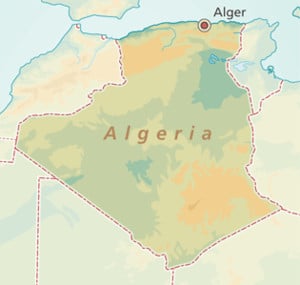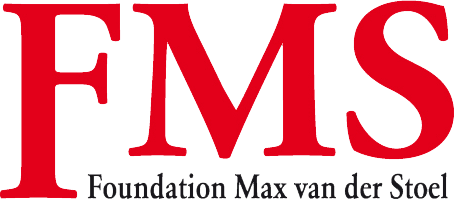Algeria
Quick facts
Overview

In 2008 parliament amended the Algerian Constitution, removing the two-term limit of the presidency. This allowed Bouteflika to run again in the 2009 elections, which he won. He promised to create more jobs. However, his government failed to do so and Algeria continues to struggle with high youth unemployment and corruption up until today. This was part of the reason why in 2011 protests erupted, as part of the Arab Spring. This triggered some minor changes, with the 19-year long state of emergency being lifted and some political reforms being implemented. In practice the country’s ruling elite, based in the military and the National Liberation Front (FLN) party, continued to wield power in the country.
When Bouteflika announced he would run for president again in the planned April 2019 elections, young people en-masse took to the streets. This has been dubbed the Hirak movement. Bouteflika succumbed to the pressure of the protesters and high-placed military officials, postponed the elections and stepped down. Abdelmadjid Tebboune, also of the FLN, was elected president in December of 2019. However, protesters desire actual political change. Due to COVID-19 many stayed indoors in 2020, but in January of 2021 protests significantly grew in size again. Tebboune dissolved parliament and called early elections in June of 2021, but people continue to take to the streets.
Political situation
Since the civil war, Algeria has been on the road towards democracy, although this has been a strenuous one. The reconciliation plan of Abdelaziz Bouteflika stabilized the country. The rebels of the Islamic Salvation Army that fought the government during the civil war were granted amnesty and reintegrated into society. The economy started growing from around the early 2000s, raising the standard of living of the population. However, much of this growth was due to rising oil prices. With oil making up 95 percent of exports and 60 percent of the government’s budget, the country is heavily dependent on the oil price. This makes the economy extremely volatile, having a significant impact on the political stability.
The president
The head of the executive branch of Algeria is an elected president for a term of five years. One is only allowed to serve as president for two terms, either consecutive or separately. Candidates can be nominated by a popular petition of at least 50.000 registered voters. The president holds a strong position, having power over the judiciary and having many abilities to block votes in parliament. Moreover, the prime minister is also appointed by the president and can be revoked by the president. The prime minister in turn, appoints the members of the cabinet. There is no limit to the number of terms a prime minister can serve, as well as how long one term is. This is completely decided by the president. The country’s current president, Abdelmadjid Tebboune, has been in power since December 2019, after which he appointed Abdelaziz Djerad as prime minister.
The parliament
The People’s Democratic Republic of Algeria has a bicameral parliament, which consists of the National People’s Assembly and the National Council. The National People’s Assembly (the lower house) consists of 462 members who are elected with the universal, direct suffrage according to the proportional representation system. Eight of these seats are reserved for Algerians living abroad. The term of legislature is five years, which can only be renewed once. The members of the National People’s Assembly are directly elected in 48 multi-member constituencies – corresponding to country’s wilayas (administrative districts) – with seats allocated according to the population: one seat for every 80,000 inhabitants and one supplementary seat for every fraction of 40,000. No wilaya has less than four seats. Voting is not compulsory. Either the president or one of the parliamentary chambers may initiate legislation.
In December 1991 the first free multiparty general elections for the former National People’s Assembly were held. After the first round it was very clear that the fundamentalist Islamic Salvation Front (FIS) was going to win. The army then cancelled the elections and suspended the constitution. This escalated and was followed by widespread disturbances and numerous arrests of prominent Islamists. After the Civil War (1992-2001) had cooled down an advisory body on legislation, the National Consultative Council, was set up in April 1992. This body functioned until the National Transitional Council was inaugurated in 1994, which worked towards the adoption of a new electoral law. In 1997 this new electoral law was adopted, shortly after which elections were announced. Elections have been taking place every five years since then.
The National Council (the upper house) was first instituted in 1996 and consists of 144 seats. Wilaya assemblies indirectly elect 96 members of the National Council and 48 are appointed by the president. The term of legislature is six years, of which half of the members are being re-elected or reappointed every three years. Currently the FLN of Tebboune holds 59 seats, the RND 28 seats, with remaining factions and independents making up the remainder of the elected seats. Since July of 2019 Slimane Chenine has been the president of the National Council. The National Council is a legislative branch and must approve any law approved by the National Assembly with a three-quarters majority.
Foreign relations
Since its independence, Algeria has pursued an activist foreign policy. As a former member of the Non-Aligned Movement, Algeria has historically balanced its ties between Western powers and Russia. It has various extensive energy contracts with European countries, the latest deal being with Italy. Algeria also still holds good ties with Russia, also after the its invasion of Ukraine.
With neighboring Morocco, diplomatic relations have been completely cut off since August 2021 over the Western Sahara. Algeria supports the independence of the Sahrawi people in the region, while Morocco sees the territory as an integral part of its country. The disagreement over the issue has spilled to worsening relations of Algeria with other countries, such as Spain.
2011 protests as part of the Arab spring
People followed the example of other Arab countries in 2011. Widespread protests broke out over the sudden increase in staple food prices. The government lowered the food prices, but the Arab spring in neighbouring countries inspired labour unions, opposition parties and religious groups to organise large-scale protests across the entire country. In late February, Bouteflika’s government lifted the 19-year state of emergency in response to the protests. As a response to the unrest the authorities promised to make the 2012 parliamentary elections a next step on the road towards more democratisation. But while officials billed the elections as ‘an Algerian spring’ they were mainly marked by a low turnout. Most Algerians prefered stability over political change.
Hirak movement
In the years afterwards the economy started stagnating and even declining from around 2014. The drop in oil prices had an equally negative impact on the standard of living. Youth unemployment started rising again. Young people especially turned against the Bouteflika regime and formed the basis for the 2019 protests, which is called the Hirak movement. Hirak can be loosely translated from Arabic as ‘mobilization of people’ or ‘movement’. Tens of thousands peacefully took to the streets, demanding a complete overhaul of the political system. Protesters were pushing for change and demanded the “removal of everyone” linked to the governing elite. As a result, when Bouteflika resigned and interim President Abdelkader Bensalah took over, protesters were not satisfied yet.
After the election in 2019, which saw Abdelmadjid Tebboune of the FLN gain a majority of the votes, people continued to take to the streets. This was quite unsurprising given the fact that almost the entire new cabinet of Tebboune consisted of politicians who previously served as ministers under Bouteflika. Only when the COVID-19 pandemic hit the country in March of 2020, the protests temporarily stopped. Due to rising COVID-19 infections organizers urged people to stay inside. Distrust in the Tebboune-led government only grew as a result of its poor management of the COVID-19 pandemic in 2020, which in the end sparked more protests.
Elections
2020 constitutional referendum
In an effort to prevent future protests from taking place, Tebboune initiated a referendum on the adoption of a new constitution. The constitution would expand the powers of parliament, promote the independence of the judiciary, combat corruption, strengthen citizens’ rights and balance the power of the president. It was designed to meet the demands of the Hirak movement, but critics point out that in practice it would change little. Although the abolished two-term limit to the presidency was re-installed, Tebboune would be able to govern in a similar manner to Bouteflika. As a consequence, the Hirak movement has been boycotting the entire referendum, which was held on November 1. The new constitution was adopted with a historic low voter-turnout. Not even a quarter of the electorate turned out to vote, with also 10% of votes which were cast blank or were invalid.
2021 parliamentary elections
As predicted, Algeria’s main ruling parties have lost a significant portion of seats in the June 12 parliamentary elections, which were marked by a low voter turnout. Traditionally the country’s largest party, the National Liberation Front (FLN), managed to gain 105 seats in parliament. Despite remaining the largest party, this was down 56 seats from the 2017 election result. The Islamist Movement of Society for Peace (MSP) overtook the Democratic National Rally (RND) as the second largest party. The MSP increased its share of seats from 34 to 64. Meanwhile, the RND lost 43 seats, becoming the third largest party in parliament with 57 seats.
Another Islamist party, Future Front, has also significantly increased its number of seats from 14 to 48. As such, it became the fourth largest party in the country. The last party to gain a significant proportion of the seats, was the Islamist Movement of Society for Peace (MSP), which managed to maintain its 40. The Rally for Hope for Algeria (TAJ) and Algerian Popular Movement (MPA), which previously held 20 and 13 seats respectfully, both failed to gain any seats this time. The remaining eight parties which were elected into parliament all gained three or less seats. 78 seats are assigned to independents. As expected, the Islamist parties have increased their number of seats significantly.
Ruling parties likely to maintain influence despite election loss
Despite the ruling FLN, and the supporting party RND, losing the election, they will be able to maintain most of their influence through newly elected independents. Many young people ran this election, hoping to attract the many younger Algerian voters. Many of them remain close with the established parties though, with all independents below 40 receiving government aid. There are 204 seats needed for a majority in the 407 seat Algerian parliament. The FLN and RND combined will only have 163 seats in total, but with the support of independent members of parliament the government will most likely stay put. President Abdelmadjid Tebboune can most likely also rely on the support of many of the Islamist members of parliament.
Even though Islamist parties have increased their share of seats and are considered the election’s winners, they are not likely to significantly alter the status quo. With somewhat over 110 seats, the Islamist parties are well represented, but lack the mandate to take charge. The FLN and RND coalition remains ahead by quite a margin, certainly considering their ties with the elected independent members of parliament. The government also remains backed by the military, who are widely considered to pull the strings within Algeria’s politics. Given all of this, the election result itself will not have much impact on the already by Tebboune promised political and economic reforms.
Subscribe to our newsletter!

